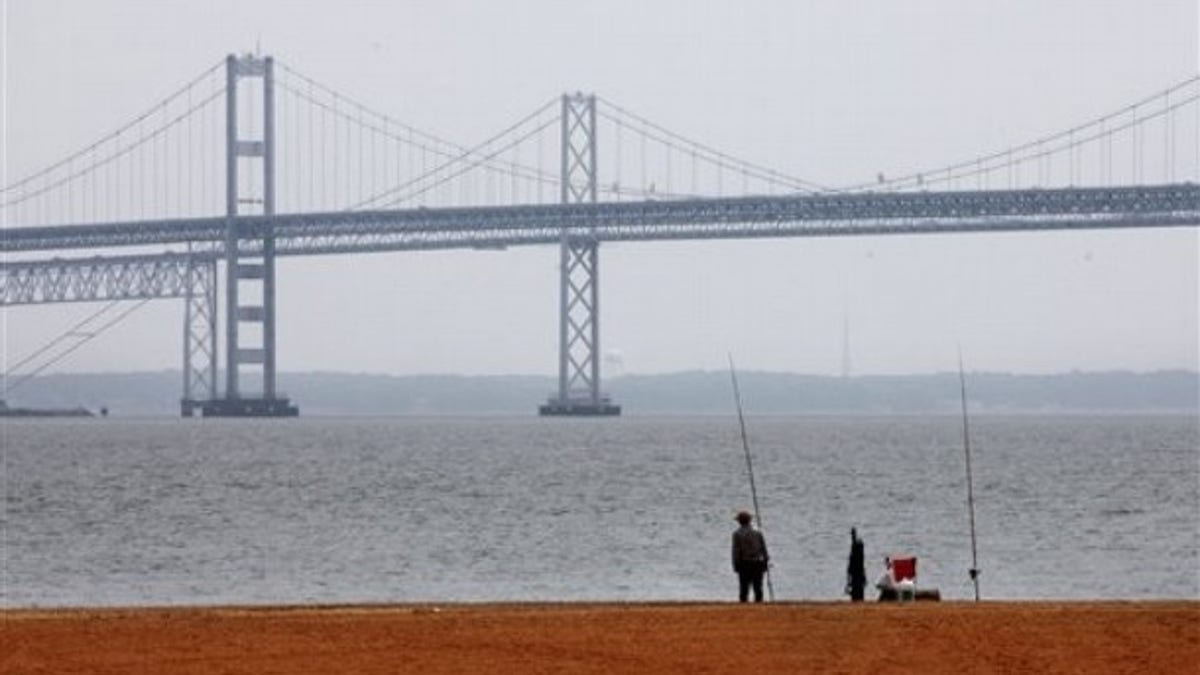
The Chesapeake Bay has been a magnet of regulatory rules to prevent pullution through the watershed that spans six states. (AP)
COLLEGE PARK, MD. -- A new law co-sponsored by a Maryland Democratic senator will force the federal government to pay stormwater management fees to local and state governments in a bid to help fight pollution in water resources.
Sen. Ben Cardin, D-Md., said Thursday it's only a "matter of weeks" before states can start collecting the fees from federal government facilities like military bases, prisons and other agencies. Private businesses are already charged those fees, and supporters said the federal government should not be exempt.
"If they are part of the problem, they should be part of the solution," said Ken Kirk, executive director of the National Association of Clean Water Agencies, who participated in a roundtable discussion with Cardin in College Park.
Congress passed the law in December in response to a Government Accountability Office letter that denied federal government payment to the District of Columbia for impervious surface area charges. The GAO contended that the charges were akin to an impermissible tax on the federal government.
President Obama signed the bill into law last week.
Nancy Sutley, chairwoman of the White House Council on Environmental Quality, who participated in the rountable, said that with more than 2 million employees, 500,000 buildings and 600,000 vehicles nationwide, the federal government has a large footprint on the environment, Sutley said.
"It is important that the federal government not only be a leader," Sutley said, "but also a good neighbor."
Pollution becomes a more significant issue as development increases, particularly in the region around the nation's capital, Cardin added.
"One acre of a parking lot will produce 16 times more pollution than one acre of meadowland," Cardin explained.
About 3 percent of land in Maryland and about 5 percent of the land in the Chesapeake Bay watershed is owned by the federal government, Cardin said. Now local municipalities and counties can assess the federal government for those properties to generate revenue for measures such as erosion control and drainage systems.
The District of Columbia anticipates revenue of $2.6 million from federal government fees, according to the District Department of the Environment. Estimates for anticipated revenue in Maryland are not available because fees vary by jurisdiction.
Some local jurisdictions charge flat-rate fees for single-family residences and fees based on the amount of impervious area for multifamily units and nonresidential properties.
Other jurisdictions use a portion of the property tax to fund their programs, said Sam Wynkoop, acting director of Prince George's County, Md.'s Department of Environmental Resources.
Wynkoop said the federal government owns 8.2 percent of the land in Prince George's County, where officials may reconsider how to assess the fees with the passage of the new law.
At the event, participants examined the potential effects of the legislation on the ability of local and state governments to combat pollution, particularly in the Chesapeake Bay, which spans six states.
"The Chesapeake watershed is particularly vulnerable to this source of pollution," Cardin said. "It's the only major source of pollution in Chesapeake Bay that is growing."
Capital News Service contributed to this report.




